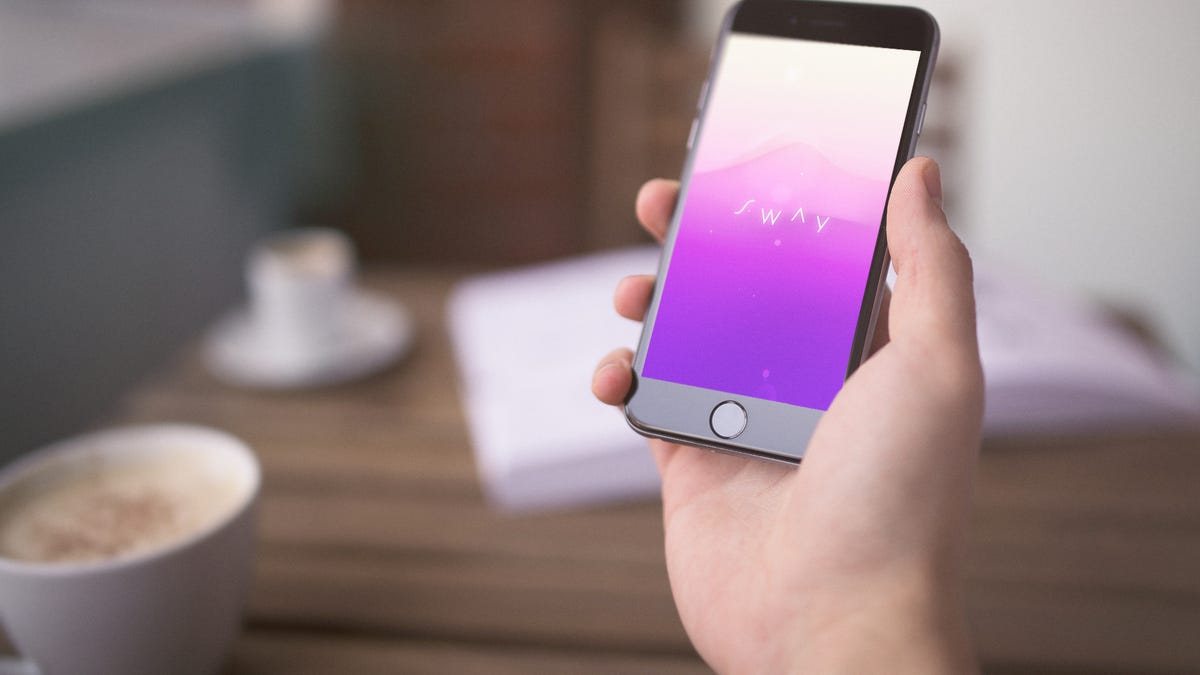Ustwo's Sway app wants to put meditation in your motion
The studio that brought you Monument Valley offers a new meditation method based as much on your movements as your mind.

In humanity's never-ending quest to destress, we turn to the Scandinavians for answers.
First they brought us hygge, and now they bring us Sway.
Sway is a new meditation app from the Nordic branch of Ustwo, the studio that made Monument Valley, and Danish wellness company PauseAble. It melds physical movements with the technology we carry in our pockets to help us learn mindfulness techniques.
It's not the first of its kind. Apps like Headspace, Buddhify and Pulse, which is also from Ustwo, are already helping people find peaceful moments while also being citizens of a busy world. Sway's difference is that rather than providing guided meditations, it teaches techniques designed to help you guide your own meditation and apply mindfulness to movements and moments that you'll experience in daily life.
Society today is stressing us out, and meditation is one way of dealing with this, said Ustwo Nordics' founder Marcus Woxneryd in an interview. "The problem is it needs a lot of practice and dedicated time -- it is a craft you need to become good at to get the effects of, so we wanted to enable that practice to anyone anywhere."
As with previous Ustwo apps, Sway is mesmerizing to look at. This is purposeful -- it uses gently pulsing purple graphics designed to have a calming effect -- but Ustwo is actually hoping you'll look away from your phone while you're using Sway.
The app uses audio and an ambient soundtrack to provide direction and feedback and takes its readings from your phone's gyroscope, meaning you don't need to interact with your screen. As you progress through the levels, which range in duration from three to 20 minutes, you'll learn a whole range of techniques that rely on you moving different parts of your body.
The first level, for example, encourages you to use slow flowing motions to gently move your phone around, which the app tracks with the device's gyroscopes. There are six levels on the app. Every day you move up a level, but every day you miss a meditation you move back a level.
There are six levels in total, each of which teaches a different movement-based meditation technique, many of which have been inspired by the ancient Chinese martial art tai chi. "We discovered a simple way for technology to determine voluntary attention through slow continuous bodily movements," said Peng Cheng, founder of PauseAble. "This movement itself actually anchors attention in the present moment."
Sway is about learning to meditate without the help of a guide.
The idea is that by relaxing, you can sharpen your focus and boost your concentration. The team conducted research with the Center for Human Engaged Computing at Kochi University of Technology in Japan to find out how this form of "interactive meditation" works in comparison with more established guided meditation techniques. They discovered that not only does it work as well, but in noisy environments it works better, making it ideal for your daily commute.
Consider the irony of using your phones to destress, when you've been told so often that tech is the culprit.
"We are looking at phones in a different way," said Cheng. "Many people look at it as a stressor, but we think it is more about how we design the interaction." The technology is ideal for implementing interactive meditation because it is capable of both detecting human attention and giving feedback, he added.
"Our contribution here is we discovered a simple way for technology to determine voluntary attention through slow continuous bodily movements." The hope is that users will gradually learn to sustain mindfulness for a longer period of time. It is only this way, said Cheng, that the full calming effect can be achieved.
Sway is available now on iPhone and costs £2.99 or $2.99 to download from the App Store.
Batteries Not Included: The CNET team shares experiences that remind us why tech stuff is cool.
Technically Literate: Original works of short fiction with unique perspectives on tech, exclusively on CNET.

